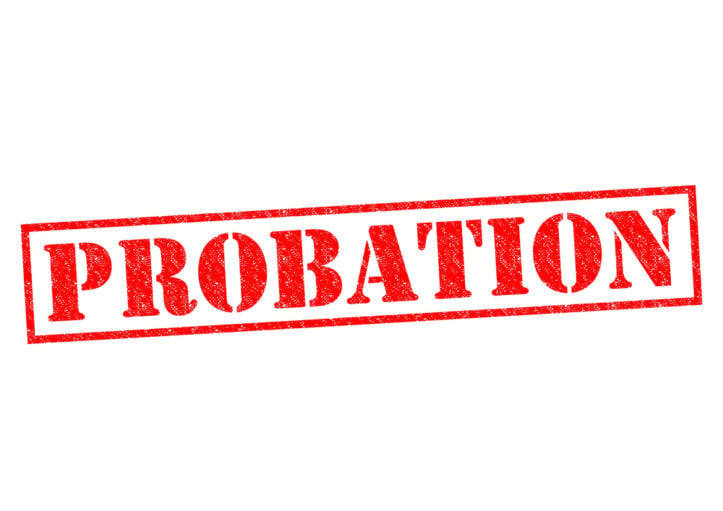Denying Virginia probation violation charges carries risks
Denying Virginia probation violation charges carries risks

Denying Virginia probation violation charges carries risks
Denying Virginia probation violation charges carries risks that the denial will be used for a more stinging probation violation sentence. As a Fairfax criminal lawyer, I know that the governing appellate caselaw already permits a trial judge at sentencing to reward a Virginia criminal defendant for admitting guilt to the crime in advance of any trial, to obviate the time, expense, and court resources needed for a trial. The appellate court caselaw is clear that sentencing judges may not penalize people for exercising their Constitutional right to plead not guilty to a criminal charge. Unfortunately, the Virginia Supreme Court has given a near-wink to trial judges to be permitted to penalize already-convicted Virginia criminal defendants for pleading not guilty at probation violation / probation revocation / probation noncompliance hearings. Commonwealth of Virginia v. David Michael Jackson, ___ Va ___ (Oct. 20, 2025). Jackson unanimously says: “For present purposes, we will not decide whether and to what extent the failure-to-acceptresponsibility factor should be applied to a revocation proceeding.10 Given the absence of briefing on this threshold issue, we will assume arguendo that it applies no differently to a revocation hearing than to a plenary criminal trial. Even with that rather generous assumption, we conclude that the Court of Appeals erred in applying it here.”
Should I plead not guilty to my pending Virginia criminal charge(s), or guilty / no contest (nolo contendere) / Alford in my criminal prosecution?
What is really the difference between being rewarded at Virginia sentencing for having accepted responsibility by a guilty or no contest plea, versus being penalized for denying responsiblity? On top of that, if a Virginia criminal defendant pleads not guilty, gets convicted at trial, and does not accept responsibility at sentencing, your Virginia sentencing judge is permitted to penalize you for not accepting responsibility at sentencing. Jackson. Nonetheless, if your Virginia sentencing judge says anything to show irritation, disappointment, or even dismay that you entered an innocence plea, be ready to seek post-sentencing relief for that, whether by appeal or otherwise. You do not know whether you will fully or partially beat a criminal charge — or obtain a hung jury — unless you proceed to trial. If you get convicted after pleading not guilty, you face the difficult choice between confessing to the judge at sentencing (and what if you have been wrongfully convicted and, therefore, have nothing honest to confess?) and risking that confession bite you in the butt if you testify at any retrial if you succeed on appeal, and the judge punishing you for not accepting responsibility. What a Catch-22.
Should I be denying the probation violation charges against me?
Denying the Virginia probation violation charges against you brings a higher risk than electing a trial before any conviction, because Jackson leaves the door open to allowing Virginia trial judges to punish criminal defendants for not admitting an alleged probation violation, unless the defendant wins their probation violation hearing (where the proof beyond a reasonable doubt standard does not apply). The reasoning of plenty of judges at a probation violation hearing seems to be that enough time has already been placed with your trial or guilty / no contest proceeding together with your sentencing, that expending court resources for a hearing on a Virginia criminal defendant’s denial of violating probation calls for a potential penalty if the defendant does not prevail. However, what if you are not in violation of your probation? What if your Virginia probation agent is mistaken, reckless or otherwise incorrect in accusing you of violating probation? Again, you do not know whether you will win your Virginia probation revocation proceeding without claiming no violation.
What does it take to make my Virginia probation agent happy with me?
It does not always take much to make your Virginia probation agent happy with you. Although probation agents and others in the criminal justice system may be offended by what I am about to say, probation agents’ work involves plenty of work akin to babysitting, through constant monitoring of your behavior; admonishing and reprimanding you when they believe you are straying; and simply sometimes or more often feeling like a thorn in your side. At the same time, for those who have had babysitters and the like as children, they have learned how to make their mutual relationship less unpleasant. The conditions for not being accused of violating probation are rather simple, including to fully obey your sentence, do not violate the law, follow your Virginia probation agent’s lawful orders (but your sentencing judge determines what that means), report as directed, call as directed, and follow the specific conditions of your sentence. Nonetheless, if charged with a probation violation, obtain the best possible Virginia criminal lawyer and include in your discussion the pros and cons of denying being in violation.
Fairfax criminal lawyer Jonathan Katz has successfully defended thousands of defendants accused of felony, misdemeanor and DUI offenses. When you meet with Jon Katz for your free initial confidential in-person confidential consultation about your court-pending prosecution, you have taken a major first step to take back control of your destiny and to increase your chances in pursuing your best defense. Jon can usually meet with you within a business day of your contacting his staff at 703-383-1100, Info@KatzJustice.com and (text) 571-406-7268.

